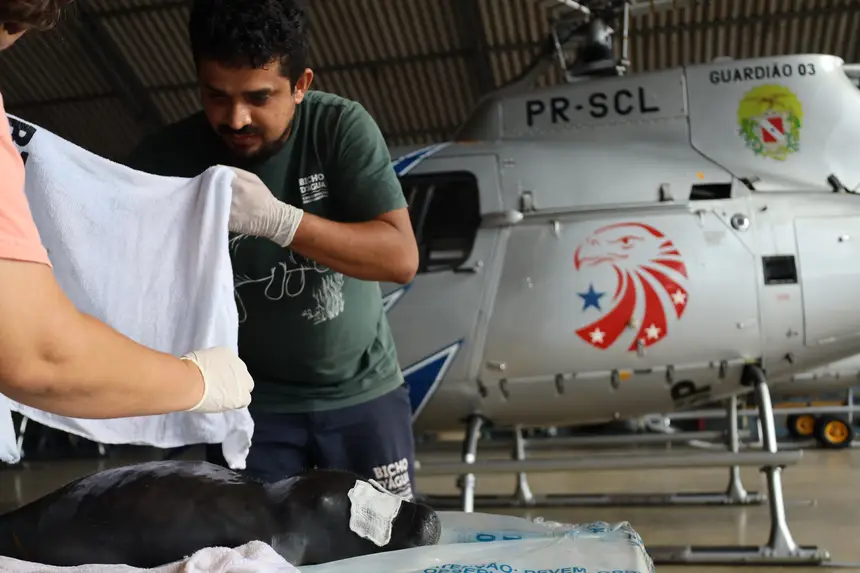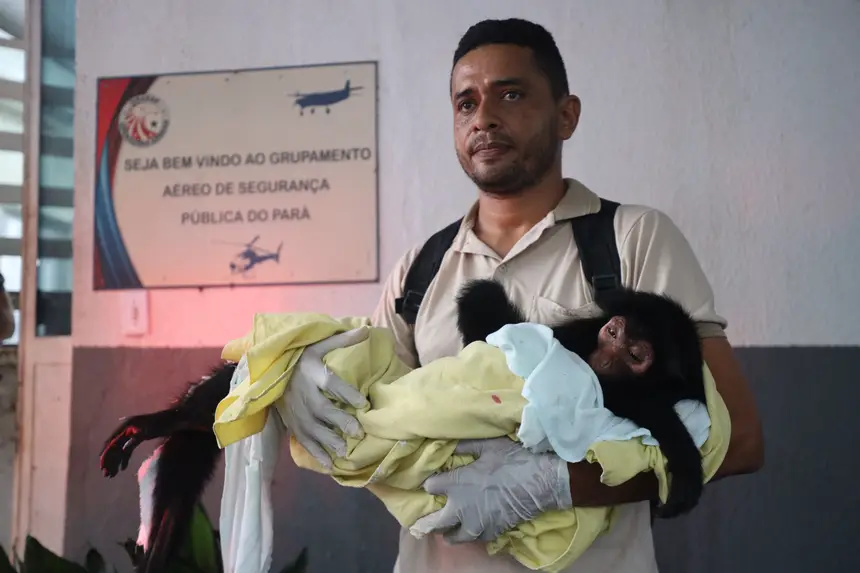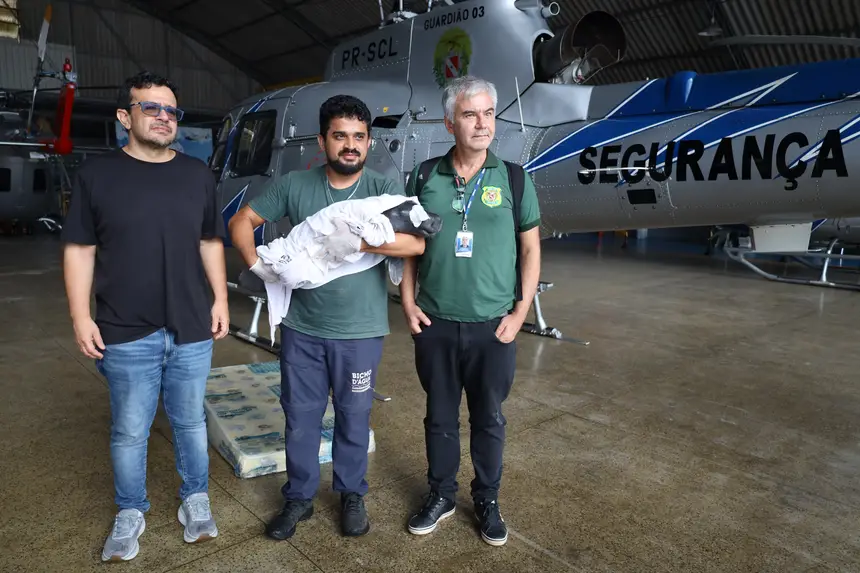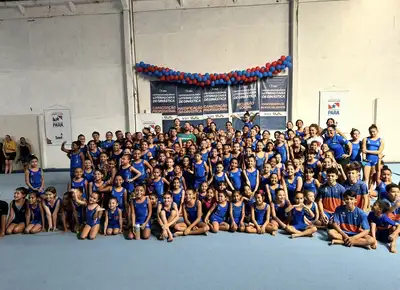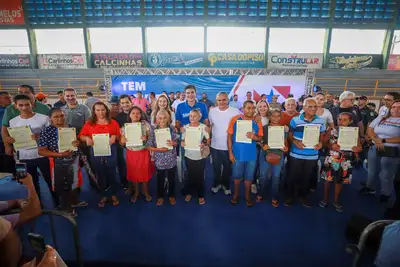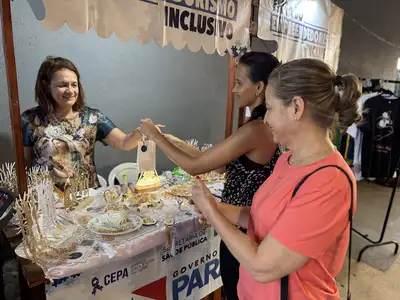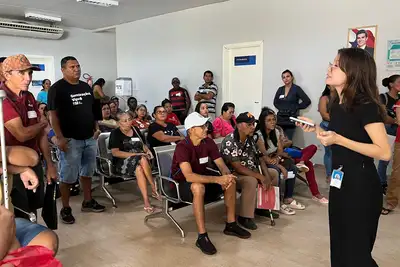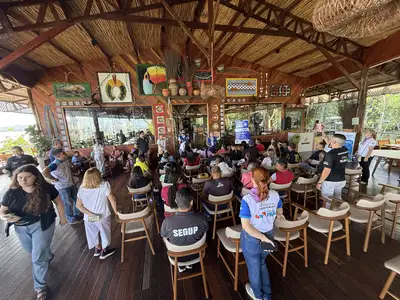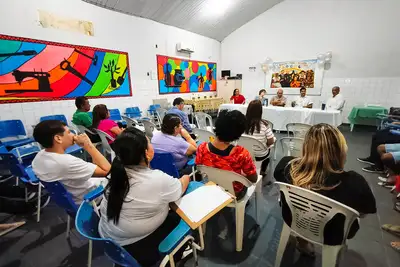Semas acts in the transport and destination of wild animal cubs in western Pará
A network of partner institutions mobilized for the rescue of a manatee cub and a monkey of the Ateles Paniscus species, commonly known as the spider monkey.
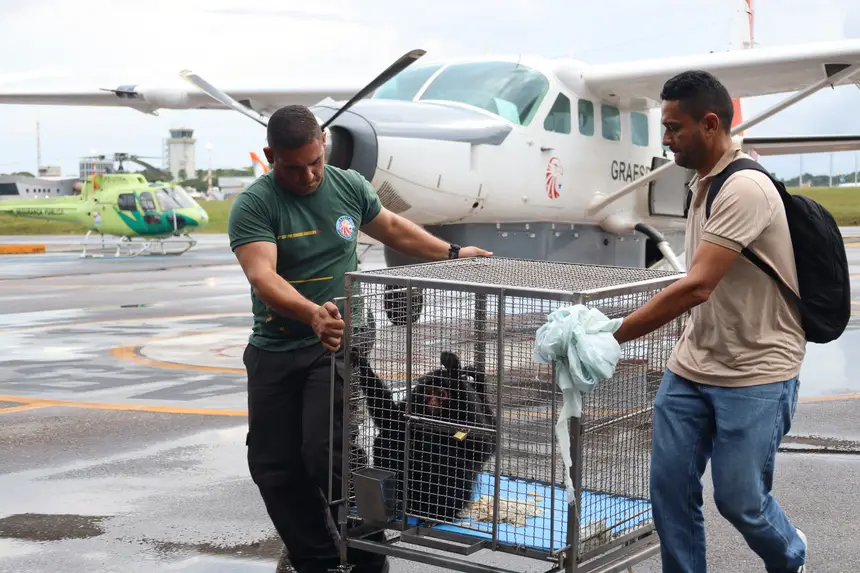
The State Secretariat for the Environment and Sustainability (Semas) acted directly in the transport and destination of two wild animals from western Pará. A manatee cub and a monkey of the Ateles Paniscus species, popularly known as the spider monkey, were brought from Santarém and Monte Alegre to Belém, respectively.
The young manatee cub was found in Santarém after being separated from its mother, in a weakened state. It was sent to the Aquatic Wildlife Rehabilitation Center of the Veterinary Medicine Institute of the Federal University of Pará (CREFA/IMV/UFPA) in Castanhal, in partnership with the Bicho D’água Institute, for specialized treatment until it is ready for reintroduction into the wild.
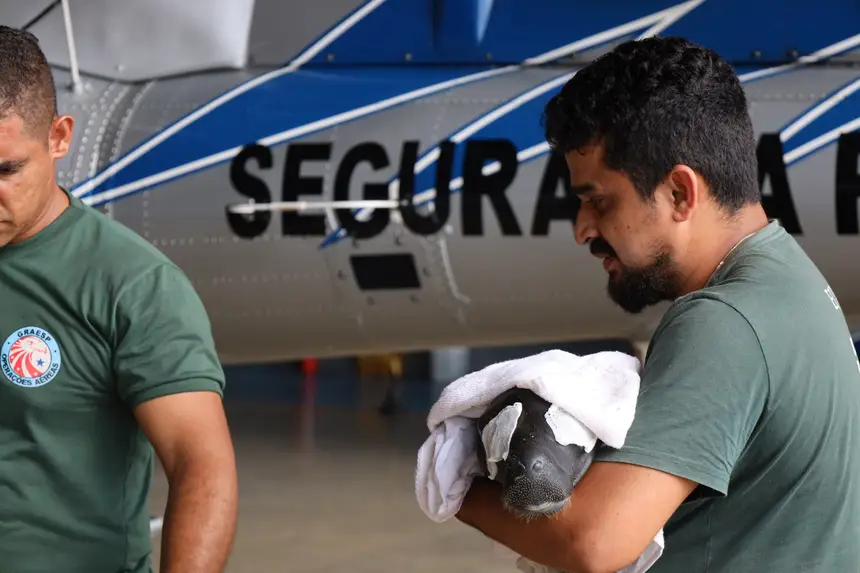
The spider monkey, on the other hand, was raised as a pet for seven years in Monte Alegre. Although it was in good physical condition, prolonged interaction with humans harmed its natural behavior, now requiring readjustment. It was taken to the CENP, located at the Evandro Chagas Institute in Ananindeua, where it will receive monitoring and participate in the center's conservation programs, which contributed to the operation by sending a veterinarian and handler, ensuring that the transport was safe for both the team and the animal.
Gustavo Canani, a compliance officer from GEFAU, highlighted the importance of the action: “We want to emphasize that wild animals should not be kept as pets. This compromises the physical and emotional health of the animals, especially primates, which form bonds with humans. Now, this monkey will have to readjust to another reality, but undoubtedly, it will be better than in the previous condition, as CENP is highly specialized and offers excellent conditions for the animals.”
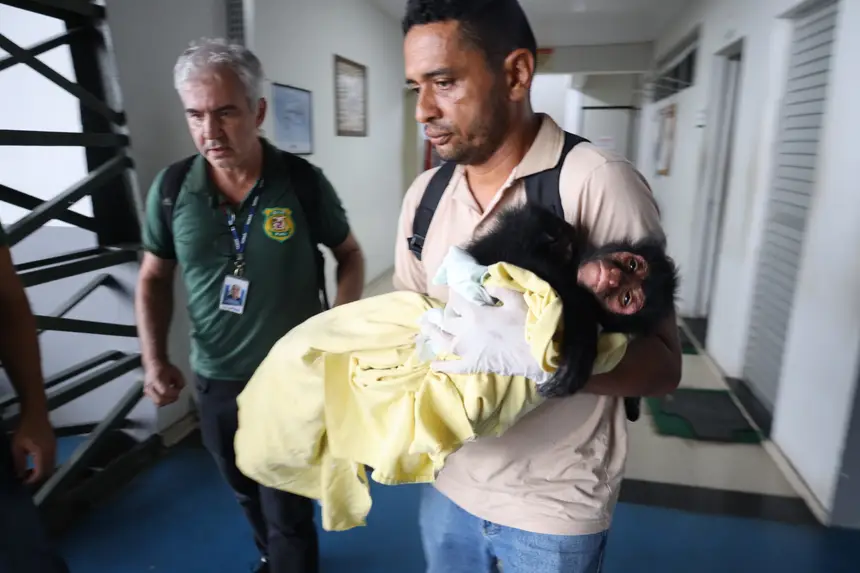
The Deputy Secretary of Environmental Management and Regularity of Semas, Rodolpho Zahluth Bastos, accompanied the arrival of the animals in Belém and emphasized the strategic role of Semas. “This is the sixth large-scale rescue we have carried out with the support of Graesp. Semas has been playing an essential role in the protection of Pará's fauna, acting from monitoring to the transport and treatment of rescued animals,” he said.
Semas reinforces that keeping wild animals is considered an environmental crime. The population can collaborate with the preservation of biodiversity by reporting or making voluntary deliveries through the number 181, via the secretariat's app, or through the ombudsman channels.
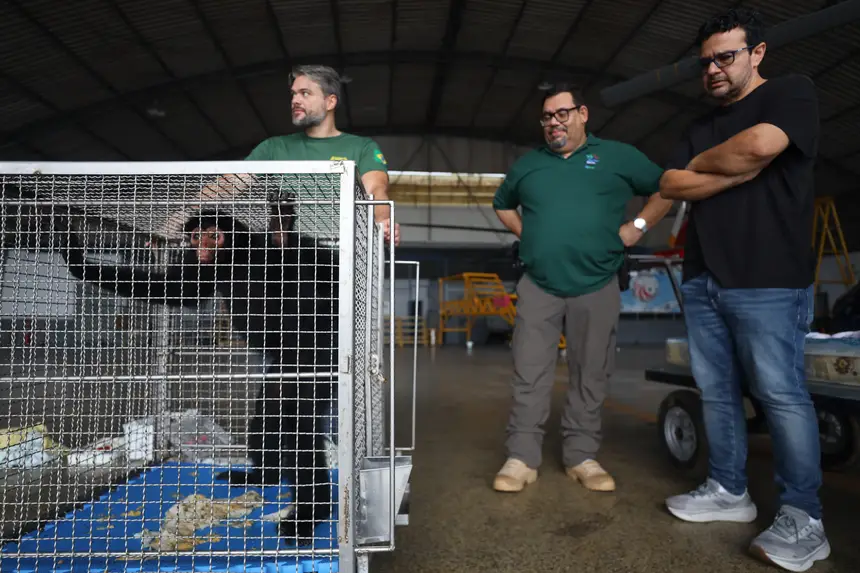
The joint action involved the following departments of Semas: the Environmental Inspection Directorate (DFISC), the Fauna, Flora, Aquaculture and Fishing Management (GEFAP), and the Fauna and Fishery Resources Inspection Management (GEFAU). The initiative was supported by the Pará Public Security Air Group (Graesp) and partner institutions such as the Bicho d’Água Institute, the National Primate Center (CENP), the Brazilian Institute of Environment and Renewable Natural Resources (Ibama), the Wild Animal Screening and Rehabilitation Center (CETRAS UFRA), and the Municipal Secretary of the Environment of Monte Alegre, where the voluntary delivery of the primate took place.


